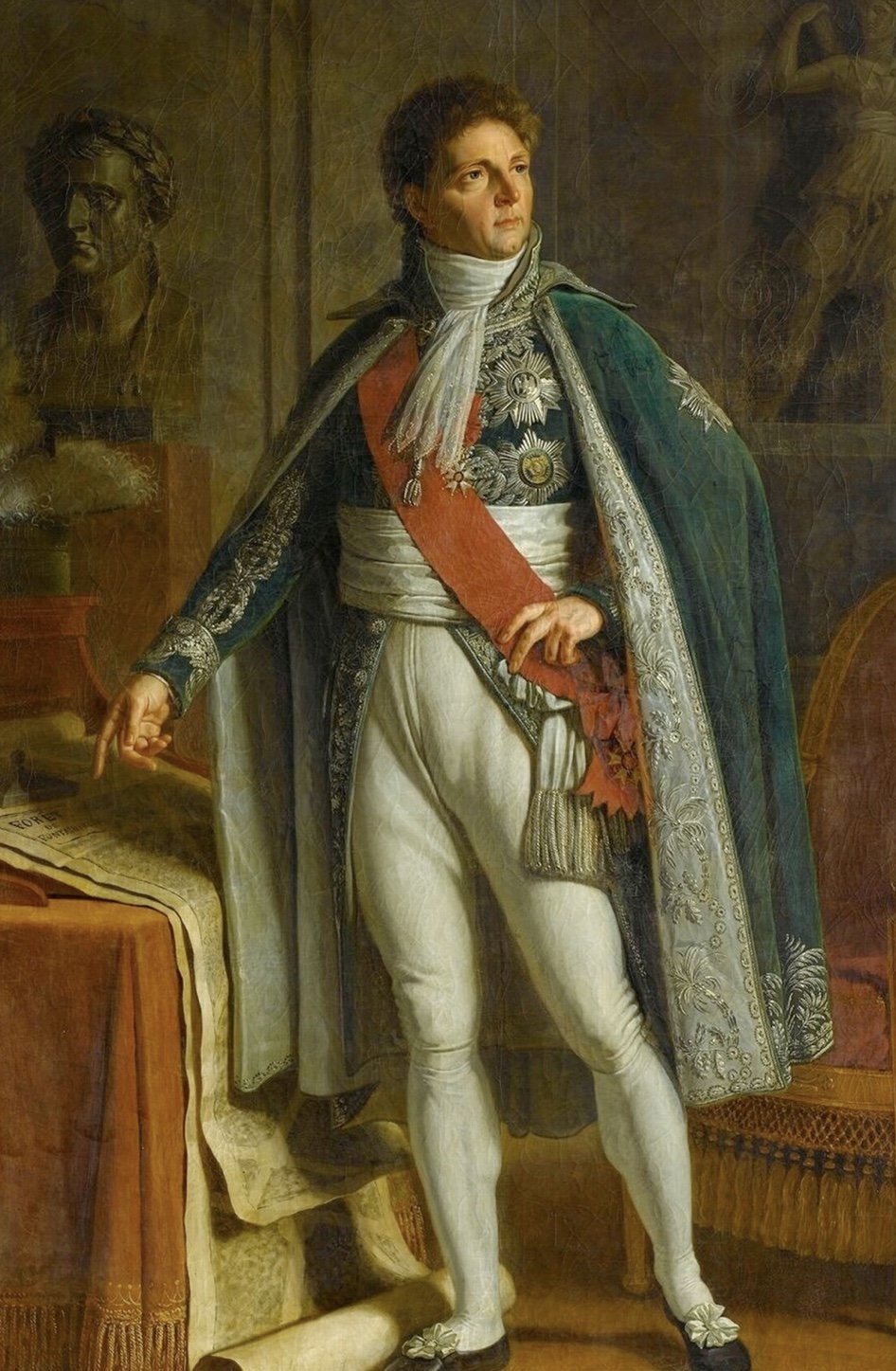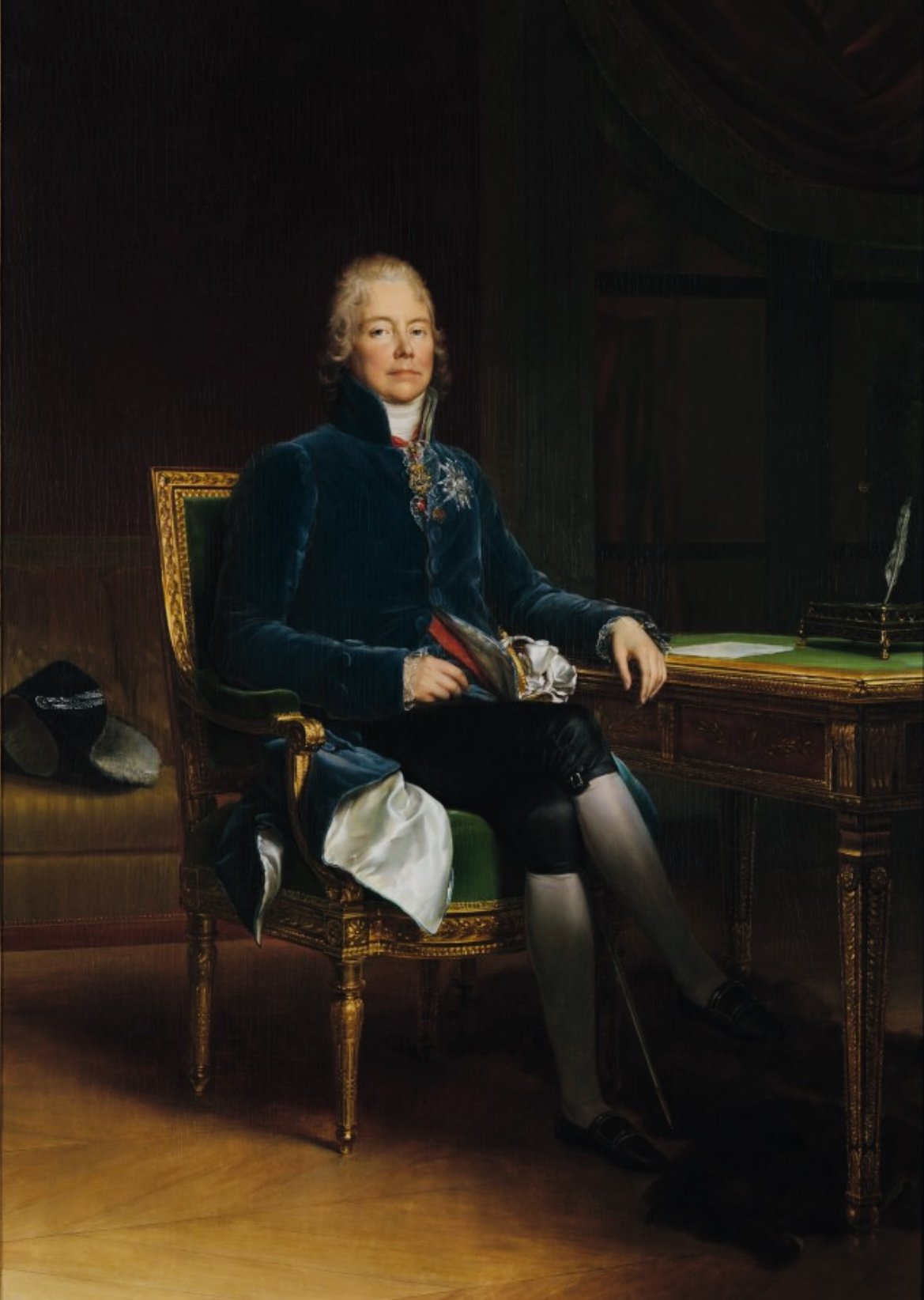Let’s have another look at Hortense’s Memoirs. If you want to read the book it is available for free at the side bar in English and French. Use the widget on the sidebar to translate the text below into pretty much any language.
Hortense describes how Archduchess Maria Louise was chosen to become the new Empress of France. This marriage was contracted in the hope for a durable peace and that was the bait in the trap which destroyed Napoleon’s earthly life.
Napoleon obviously believed he could overcome the lifelong programming of this princess - who was drilled to view him as the embodiment of evil, the Antichrist - and he was a completely wrong about that. Napoleon’s luck changes as soon as this princess enters his life.
Which side was really working for the Antichrist? You tell me.
Hortense’s memoirs continues:
Letters became more rare, and she still waited for them. There was a little room from which she could get a view of the highroad. Every time she heard that there was to be a hunt in the forest of Saint-Germain she would remain at the window till she had seen the Emperor's carriage pass and repass.
I began to fear that her sacrifice was costing dearer than I had at first thought it would. My brother and I united our efforts to find something to amuse her. She appeared to resign herself little by little to her fate, though for a long while the slightest sign of interest on the Emperor's part was sufficient to satisfy her and renewed her courage.
Moreover, Malmaison was constantly full of a crowd of people who, whether they were petty tradesmen or cabinet ministers or Marshals of France, brought her the homage of their respectful devotion.
When the weather became colder, she expressed a desire to return to the Elysée.
The Emperor consented and came to see her there once or twice. I had not left my mother's side for a single day when I received from the Emperor the notification of my appointment as princesse protectrice of the school for the daughters of members of the Legion of Honor.
He had from the first intended I should hold that post, which attracted me all the more as it placed the daughters of the heroes of France under my protection and guardianship.
I called one evening on the Emperor to express my thanks. He appeared annoyed that I had not returned before to see him.
He thought I was angry, and I was only sad, which was all the more natural after that fruitless effort on my part to obtain a separation, when he had indicated that he wished on the contrary to reconcile me with the King.
I constantly found myself having to bear both my worries in regard to my husband and his own troubles resulting from what was taking place in Holland. Although I knew nothing about politics, I grasped the fact that the King wished to be an independent ruler, free to promote the happiness of his subjects as he thought best, and without being forced to submit to the wishes of the court of France.
This was doubtless a very natural desire and one which sprang from an almost servile attachment to what he considered his duty, to those new obligations assumed on ascending the throne. But how could he expect to maintain his independence at a time when all the other sovereigns of Europe were forced to agree even against their will to the wishes of the man who had conquered them?
I said one day to one of the cabinet ministers who had come to complain about the Emperor's severity that he must know I never took any part whatsoever in politics, and that my husband was receiving bad advice.
Perhaps, had he possessed a force capable of resisting that of the Emperor, he might have separated the politics of Holland from those of France if he judged this was advisable, but since he was not strong enough to do so he was obliged frankly to ally himself with France.
If he did so, even though it proved a costly operation, Holland might hope to secure certain advantages from the continually growing power of its neighbor. But if he acted differently the Emperor might become irritated and annex a country which did not fall in with his plans.
Thus, the King, though acting with the best of intentions, might do the greatest harm possible to Holland by compromising her independence.
This was the one and only talk regarding affairs of state I ever had with any of the Dutch ministers. I ought probably to have shown more interest in public matters which affected my family, but I thought they were no concern of mine, a convenient idea when one has a lazy mind which places its conception of happiness elsewhere than in rank and power.
My mother was much interested to know who was to take her place. She inquired carefully regarding all the eligible princesses in Europe. One day Madame de Metternich called and spoke to her at length about the Archduchess Marie Louise.
My mother seemed to consider her the most suitable person the Emperor could choose. Madame de Metternich wrote her husband about this conversation. She received an answer, which she showed me on account of the liking she had had for me ever since I took her part when everyone else was avoiding her.
According to this letter her husband had shown his sovereign the benefits that would accrue to the states over which he ruled, and the happiness his daughter would have if she were chosen by the Emperor Napoleon as his wife.
The Emperor of Austria seemed quite willing to bestow the hand of the Archduchess on Napoleon if he asked for it.
Only his wife, the Empress, made certain objections. A few moments' conversation with Monsieur de Metternich was enough to overcome these.
This letter had been shown that morning to Monsieur de Talleyrand. Without doubt the Emperor was informed of its contents, for I heard from my brother that he had been ordered by the Emperor to present to the Prince of Schwarzenberg, the Austrian Ambassador, a formal request for the hand of the Archduchess Marie Louise.
A few days before, a cabinet meeting had been called to discuss whether it would be preferable to choose the Russian or the Austrian princess. The opinion of the cabinet was divided. Those who like my brother preferred the Austrian gave as their reason the fact that there was no point of contact between Russia and France and not the slightest danger of hostilities arising between these two countries.
It was far more useful, they said, to fuse into a close alliance the interests of Austria and France, which had in the past provoked friction and which continued to offer constant possibilities of conflict. This last argument proved convincing, the more so as there was the question of the difference of religion, it being understood that a Russian princess would not change her faith and it would not do to allow a priest of the Greek Church to come between husband and wife.
It was therefore decided that the Archduchess Marie Louise should become Empress of France, and that the Queen of Naples was to go to the Austrian frontier to meet her.
The Prince of Neuchatel was sent to convey the Emperor's procuration to the Archduke Charles, who was to represent the Emperor of the French at the ceremonies in Vienna.
As for the Emperor his attention was entirely taken up by the thought of his young wife. It seemed as though he could never obtain enough details about her. Whenever a page or an aide-de-camp returned after taking a letter or a present to her, he would be overwhelmed with questions.
All agreed in saying that she had a good figure, was blonde, had a fresh complexion and a pretty foot, but no one dared claim that she was pretty. Monsieur de Talleyrand one day repeated to me one of these reports which a young aide-de-camp had made to the Emperor in his presence.
“Tell me frankly," said the Emperor, "how do you like Empress Marie Louise?" "Very much, Sire."
“Very much does not convey any information. Let me see. How tall is she?"
“Sire, she is about as tall as"---here he hesitated a moment and added—"as tall as the Queen of Holland."
“Ah, that is very nice. What color is her hair?"
“Blond, about like that of the Queen of Holland."
“Very well, and what sort of skin has she?"
“Very white."
“And her complexion?"
“Very clear, like that of the Queen of Holland."
“She looks like the Queen of Holland, does she?"
“No, Sire, she does not, and yet as regards everything you asked me, I answered truthfully."
The Emperor dismissed him, shook his head and said: "I have trouble making them say a word. I know that my wife must be very homely for not one of these young wretches has been able to say that she was pretty.
Well, as long as she is good-natured and bears me many sons, I shall love her as though she were the most beautiful woman on earth."
The original French is available below:














